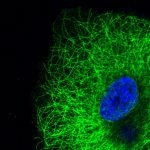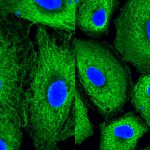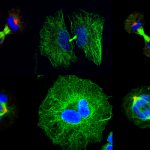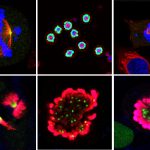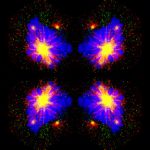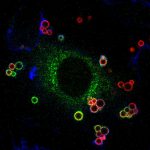News: (Click here for more)
May 2023: Dr Amir Faisal wins the prestigeous Vice Chancellor’s Teaching Excellence Award.

Cancer is the 2nd leading cause of deaths worldwide and is responsible for over 18 million new cases and 9.5 million deaths annually. In Pakistan, there are more than 118,000 cancer-related deaths every year, with breast cancer and cancers of the lip and oral cavity being the leading cancers accounting for nearly 15% and 11% of cancer mortality, respectively. The systemic treatment of cancer involves chemotherapy and newly emerging targeted or personalized therapies. The efficacy of these treatments, however, is often impeded by the development of drug resistance which represents one of the main challenges in modern cancer therapeutics.
The interdisciplinary research in my lab focuses on the identification and characterization of novel synthetic and natural compounds that target key cellular proteins required for proliferation and survival of cancer cells. Some of these proteins are involved in mitotic cell division, a process where cells faithfully segregate their genetic material into daughter cells. Inhibition of these proteins results in the failure of cells to successfully complete mitosis, which ultimately leads to programmed cell death. We are also interested in understanding the mechanisms of cancer drug resistance, evaluating drug combinations to overcome such resistance and identifying novel drug targets through hypothesis based screening.

The main project in my lab aims to discover small molecule inhibitors that target key mitotic proteins, including Aurora kinases and microtubules in collaborations with organic and medicinal chemists, both within and outside LUMS. Some of the microtubule targeting agents discovered in our lab can overcome Pgp-mediated multidrug resistance to chemotherapeutic agents. We are also utilizing various cell-based high throughput screening approaches to screen in-house and commercial libraries for compounds that can overcome multidrug resistance or target FLT3 oncogene. Identification of new therapeutic strategies for oral and breast cancers through compound library screening and drug combination studies is another exciting area we are currently pursuing. Screening of >1100 drugs with known targets in oral and breast cancer cell lines has identified hits that inhibit the growth of these cells at low nanomolar concentrations. We are using primary tumor cells isolated from oral cancer patients for evaluation of these newly identified hits for their efficacy.

Apart from cancer therapeutics, we are also undertaking some basic research to decipher mechanisms underlying stem cell differentiation and epigenetic control of gene expression in collaboration with colleagues in the biology department. Trophoblast stem cells are involved in the formation of the and differentiate into polyploid giant cells for implantation of the embryo into the mother’s uterus. Defects in trophoblast giant cells result in developmental abnormalities such as miscarriages. We are utilizing next-generation sequencing and high throughput screening to identify genes involved in the differentiation of trophoblast stem cells into giant cells. Similarly, we are using a reporter assay and inhibitors of various signaling proteins to identify epigenetic regulators of gene expression.
About Dr Amir Faisal:

I received my PhD in Cell Biology from Friedrich Miescher Institute for Biomedical Research/University of Basel, Switzerland in 2004. During my PhD, I identified novel roles for Shc protein, an important adaptor downstream of tyrosine kinases, in insulin signalling and cytoskeletal reorganization. I received his first postdoctoral training (2004-2008) in Protein Phosphorylation Laboratory at London Research Institute where I discovered that another adaptor protein, MyD88, couples Protein Kinase C epsilon to Toll-like receptors during innate immunity. From 2008 to 2014, I worked at Cancer Therapeutics Unit of Institute of Cancer Research in Sutton first as a postdoctoral fellow and later as a Senior Scientist. I played an important role in the progression of several drug discovery projects, that resulted in the discovery of two preclinical development candidates. Both the
inhibitors underwent preclinical development funded by the industrial partners and have now being evaluated in Phase I clinical trial. MPS1 inhibitor BOS172722 is nearing Phase I/Ib study in combination with paclitaxel in patients with advanced non-haematologic malignancies. While the dual Aurora/FLT3 inhibitor has entered phase I/IIa clinical trial in November 2020 for Acute Myeloid Leukemia. Since joining LUMS in August 2014, I have established Cancer Therapeutics Lab that focuses on early phase drug discovery and research into cell signalling. I am particularly interested in the identification and characterisation of hit compounds that target microtubules and Aurora A kinase, two critical components of mitotic cell division. Work in my lab aims to discover microtubule targeting agents (MTAs) that overcome Pgp-mediated multidrug resistance. For both microtubules and Aurora A kinase, we use various cell-based, in vitro and in silico approaches to screen targeted compound libraries synthesised by collaborating chemists both within and outside LUMS. Similarly, we are utilising oncogenic addiction of AML cell lines to identify inhibitors that target FLT3 and have generated cell lines resistant to FLT3 inhibitors to understand the resistance mechanisms. We are also employing genome-wide transcriptome analysis and compound library screening to identify regulators of trophoblast stem cell differentiation, a critical event during placental development.










Postal Address
Dr. Amir Faisal
Associate Professor and Chair
Department of Biology
SBA School of Science and Engineering
Lahore University of Management Sciences
D.H.A. Lahore Cantt. 54792
Lahore, Pakistan
UAN: 111-115-867 Ext: 8453 | Direct: +92 423 560 8453 | Fax: +92 42 3560 8317
Email: amir.faisal@lums.edu.pk

